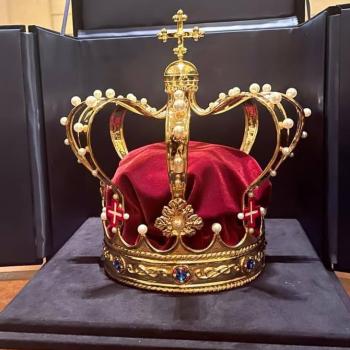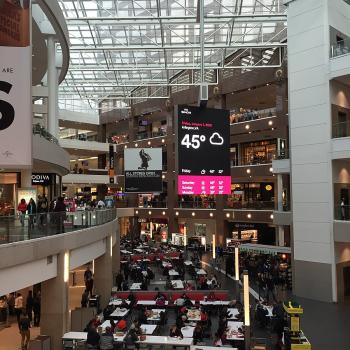Let’s start with an op-ed in the Gotham Gazette showing how easy it is to camouflage increased punishment and surveillance as “support services”: “More Evidence Punitive NYPD Youth Programs Fail”:
This week the New York Times revealed the content of an internal NYPD report showing that a much lauded juvenile crime program doesn’t work. It’s yet another example of misguided punitive policing, offering little by way of actual progress.
Originally developed under the title “Juvenile Robbery Intervention Program” (J-RIP), it targets past juvenile offenders in hopes of preventing future crime. The original J-RIP program, which began in Brownsville in 2007 and expanded to East Harlem in 2009, targeted juvenile robbery offenders who were back in the community. These youths were given a clear message that they were under enhanced police supervision and would face significant consequences if rearrested. They were also offered mentoring and a few support services by police in hopes of steering them in the right direction.
In practice, the program offered little in the way of services. Young people were given a chance to participate in existing programs like the Police Athletic League (PAL) and were regularly visited by uniformed officers in their homes and on the streets. While these officers were supposed to be acting as mentors and monitors, defense lawyers reported that officers sometimes used these visits as a pretext to conduct searches and that they sometimes called attention to program relationships in front of other youth, potentially marking them as informants—a dangerous label in these neighborhoods.
more. A couple notes: I don’t in fact know whether the bottom-up, local, anarchic programs Prof Vitale prefers have proven results. My principles incline me toward this approach strongly but when I say that anything can become a vehicle for personal and structural sin I really do mean anything. I also loathe the framing of violence as a “public health” issue. The fact that something affects public health doesn’t mean it can be medically-treated. Medicalizing either sin, or rational response to a hard upbringing and awful options, seems like a great way of obscuring the spiritual and political questions that should be at the forefront.
Also this post mostly just summarizes the Gotham Gazette piece but ends with links to some of Jesse Walker’s writing on the interpenetration of the welfare state and the criminal justice system. Both links via Walker.
“Care for Where There Is No Justice: The Modern History of Street Medics” offers a different angle on the intersection of medicine, politics, and police action:
…Over the course of their decades-long tenure, [Medical Community for Human Rights] members attended hundreds of marches to tend to the maladies of bludgeoned, shocked and sore protesters, and visited protesters in hospitals and jails to advocate for their treatment. And importantly, the work of MCHR members continued between protests. MCHR doctors were involved with hospital desegregation, with members among the ranks of committees investigating whether southern hospitals were complying with Title VI of the Civil Rights Act. Members Jack Geiger, Bob Smith, Jo Disparti and others began the first community health clinic, the Tufts-Delta Health Center, in Mound Bayou, where doctors wrote prescriptions of ‘food’ for starving patients and started farming projects to counter widespread malnutrition, inspiring the community health clinic movement. MCHR activists volunteered at free clinics started by the Black Panthers to support uninsured and discriminated against populations, and were also among the first advocates of a national health care platform. Although the work of MCHR petered out in the 1980s, projects initiated by MCHR members altered the structure of health care in the United States, and the committee itself acted as a radicalizing force for healthcare professionals for decades.
more. I was struck by how much the overlapping of medical and moral/spiritual care sounded like the work of crisis pregnancy centers. Link via PrisonCulture I think.
Speaking of, “What Can the Black Lives Matter and Pro-Life Movements Learn from Each Other?”:
This week marks Martin Luther King Jr. Day and the 43rd anniversary of Roe v. Wade. Today, abortion remains legal while a series of national stories involving police brutality against African American men and women have revealed to many another layer of inequality within the American criminal justice system. As evangelicals continue to find common ground with these causes, we asked those who have previously either spoken up on behalf of the #BlackLivesMatter or pro-life movements what the two can learn from one another.
more; answers are too short to be super surprising but it’s striking how many of them use almost identical phrases about the “image of God” in every human being. “All men are [redacted] equal,” again some more. Anyway, it’s interesting–and a good sign–that Christianity Today decided to do this. Via Matthew Loftus.
And to end with some cops-and-medicine service journalism: “Who to call when you fear calling the police.”
A loved one is having what appears to be a mental breakdown and you call 911 for help. When help arrived the end result was death. That was the situation for Quintonio LeGrier and Philip Coleman’s families. The incidents have left some to ask, “If I’m faced with the same situation, who do I call because I don’t want to call the police?” Psychotherapist Jinnie Cristerna and Rev. Bernard Jakes discuss alternatives to calling law enforcement.
A short (15 mins) segment; short answers are “paramedics and pastors, in that order,” but there’s good commentary on religious views of mental health & a caller w/Catholic Worker experience. Via PrisonCulture.















